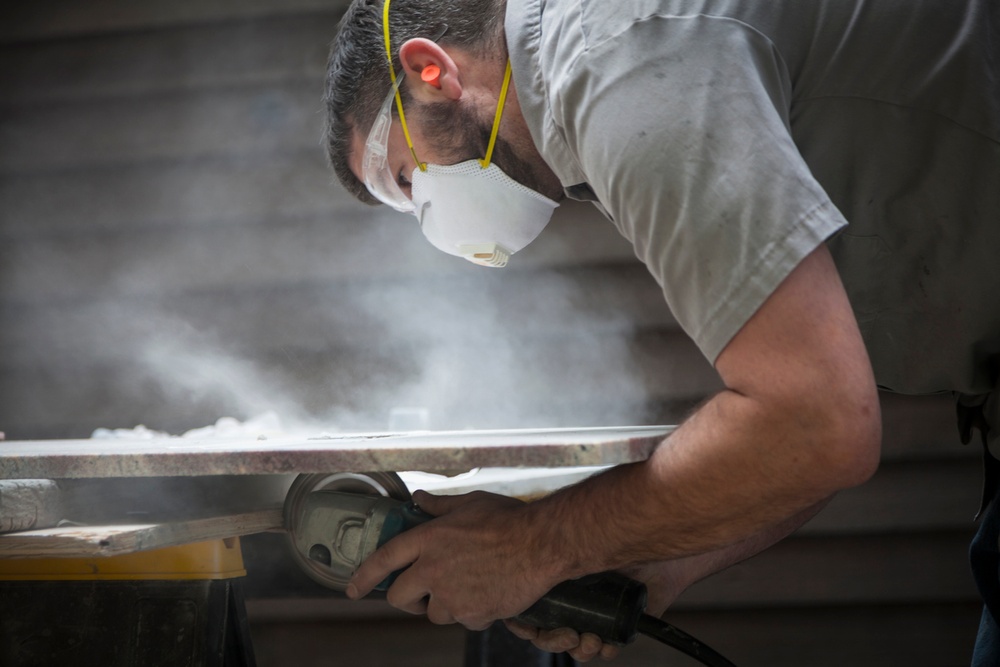New regulations, including a licensing scheme and additional requirements for builders, have been introduced in Victorian legislation that is the first of its kind in Australia.
The building industry is now taking steps to protect workers from exposure to silica dust and the negative health outcomes that can result. The new rules come in the wake of tragic deaths and illnesses resulting from silica-related disease.

New Regulations for Use of Crystalline Silica
Minister for Workplace Safety, Ingrid Stitt, approved the Occupational Health and Safety Amendment (Crystalline Silica) Regulations 2021, which will replace the Interim Regulations put in place earlier this year. The new regulations came into effect on 15 November 2021, with businesses having until the same date next year to acquire a license for working with engineered stone.
Engineered stone is commonly used in benchtops for kitchens, bathrooms and laundries in residential building projects. It is a popular and cost-effective option for homebuilders; however, it needs to be managed carefully to prevent the risk to workers.
Silica dust also poses risks in settings including construction, tunnelling and quarrying. All businesses operating across these industries will be required to following the new rules. All manufacturers and suppliers of crystalline silica products cannot supply engineered stone to businesses that do not hold the correct license.
Risks of Silica-Related Disease
Working with silica dust exposes builders to the risk of Silicosis, from inhaling tiny particles of silica which are produced when engineered stone is cut, ground or polished. These particles can result in irreversible scarring on the lungs, leading to serious health conditions, lung transplants, and sometimes death.
In the last year, WorkSafe have accepted 59 claimed related to silica-related illnesses. Four people have lost their lives.
“Silicosis has already cost too many workers their health and, in some cases their lives – that’s why we’ve banned dry cutting and are rolling out even greater protections for workers,” said Ms Stitt. “Licensing the use of engineered stone will ensure people working with these products have the necessary safety protections, so that tradies aren’t exposed to deadly silica dust.”
“Silicosis is a serious disease that can strike down young workers with devastating consequences for them and their families,” he said. “This license scheme, together with a permanent ban on uncontrolled dry cutting of engineering stone, will help prevent more workers suffering due to silica exposure,” WorkSafe CEO Colin Radford said.
WorkSafe will be enforcing the new regulations through strict auditing. Penalties for offenses against the rules include infringements and court-imposed fines. This year, they have issued 199 compliance notices relating to silica offenses.
They have also introduced free health screenings for workers to have their lungs tested for silica dust damage.

Work With a Registered and Reputable Builder
To protect the health of builders and our community as a whole, it’s vital that everyone plays their part in supporting these new measures.
If you’re in the process of building a new home, make sure you choose to work with a registered and reputable builder that holds the correct and current licenses to build with engineered stone.